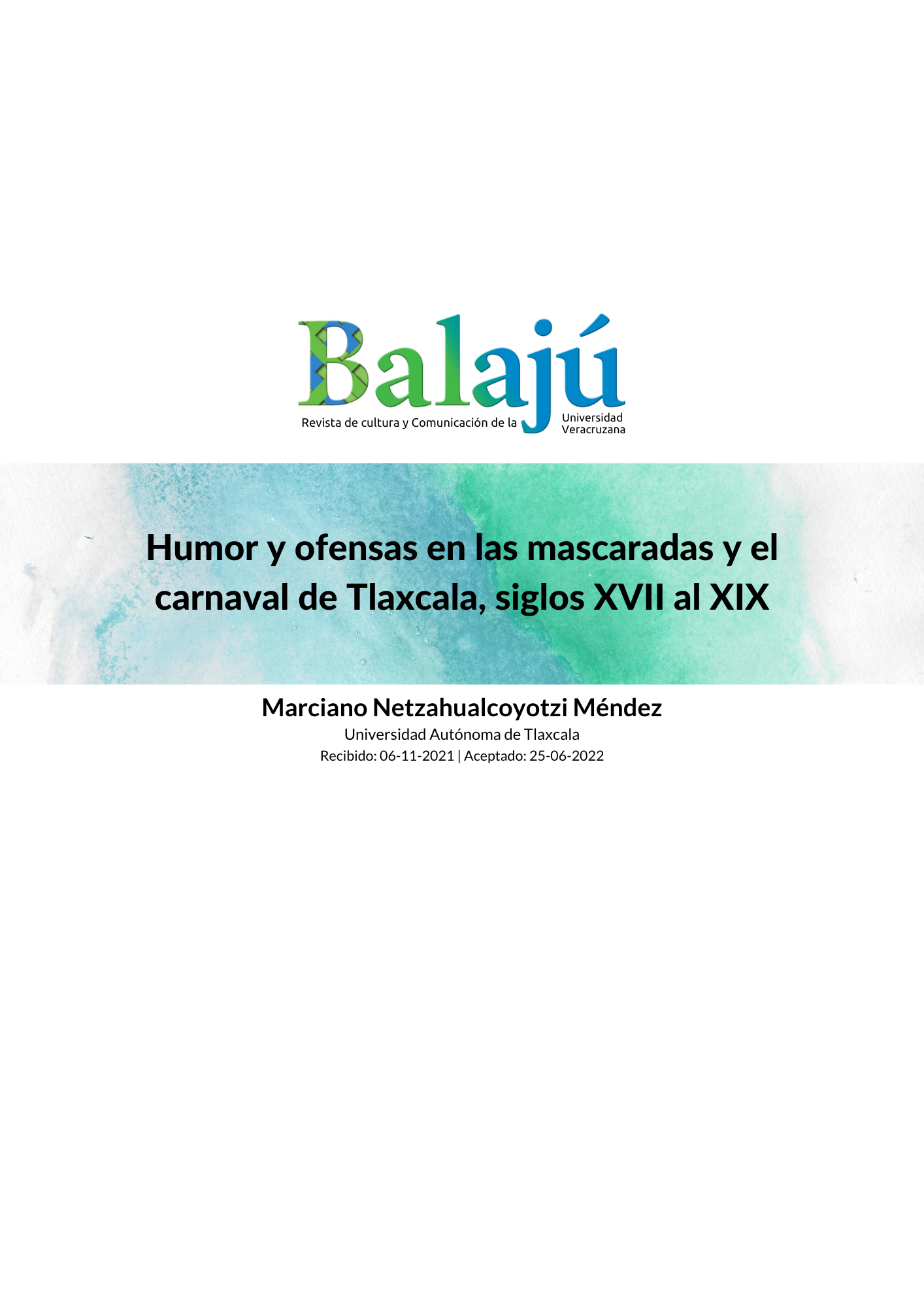Abstract
Although masquerades and carnival were two festivities with their own expressions, their fusion made possible the predominance of the carnivalesque, in that participants often dramatized social realities using humor, mockery and offense. Examining the development of carnestolendas in their macro and micro contexts allows us to understand the reasons why the government permitted, while also regulating, these moments of social catharsis. In the case of Tlaxcala, masked participants or huehues directed insults at economic elites, while the mojiganga generated expectation and uncertainty among politicians due to their controversial messages of social dissent. Despite the limits placed on tolerance, these carnivalesque activities constituted an open, free, and inclusive entertainment.
Keywords: masquerades, carnival, teasing, offense, mojiganga, carnivalesque, Tlaxcala

This work is licensed under a Creative Commons Attribution-NonCommercial 4.0 International License.


